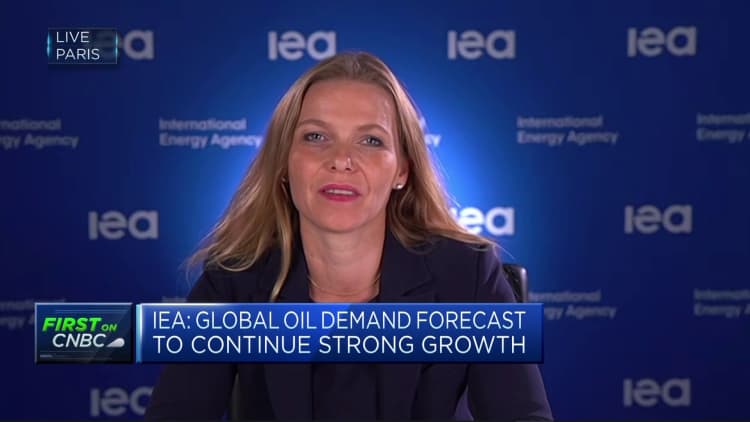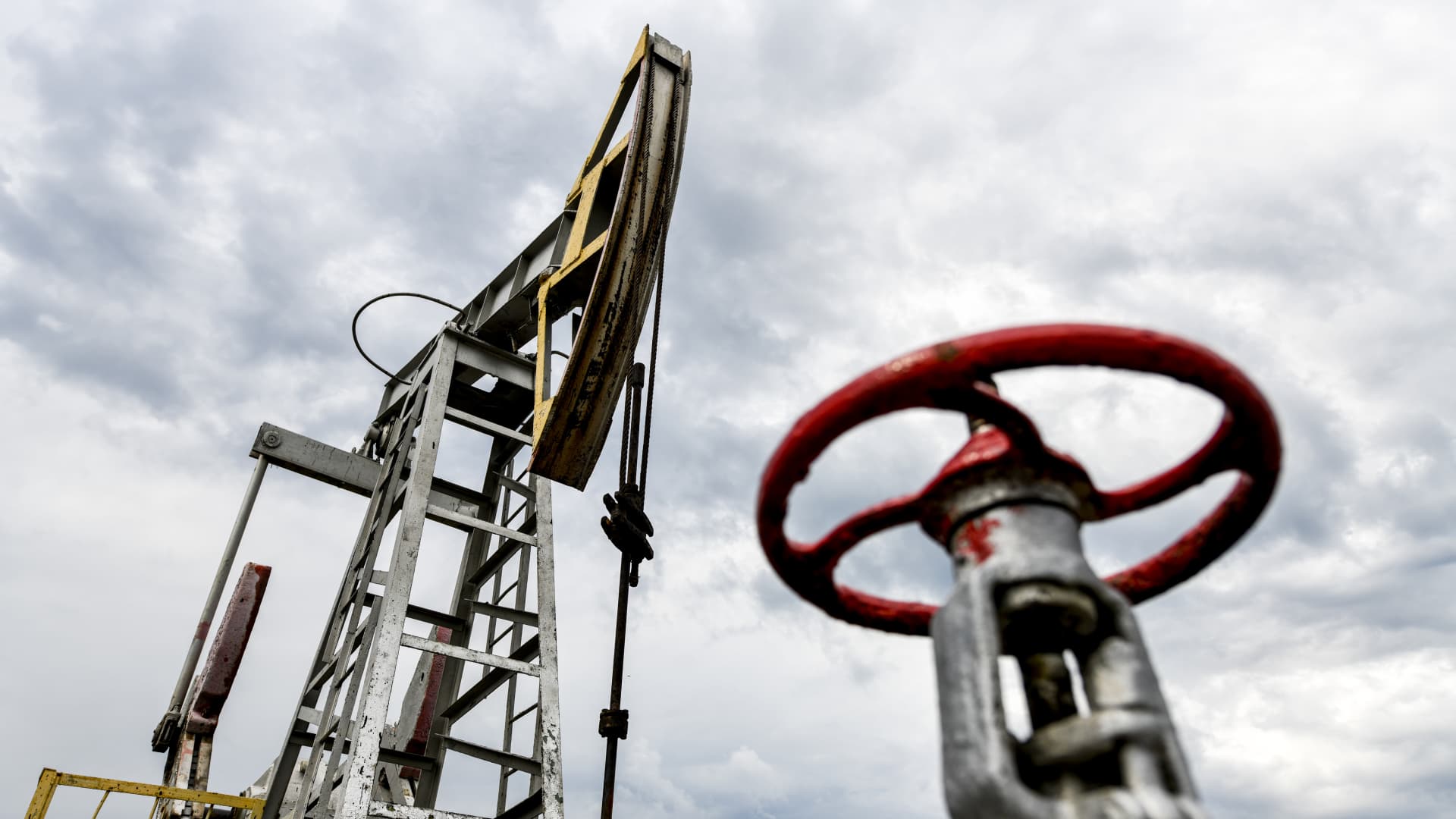A view from the oil company Tatneft in Tatarstan, Russia on June 04, 2023.
Anadolu Agency | Anadolu Agency | Getty Images
Oil prices soar by over 4% amid mounting geopolitical tensions in the Middle East.
Brent crude futures for December expiry surge by 4% to reach $89.4 per barrel. Meanwhile, West Texas Intermediate crude futures for November rise by 4.1% to trade at $86.3 per barrel, marking the highest single-day gain since April 3. WTI crude has witnessed a 4.2% increase this week, on track to achieve its largest weekly gain since September 1.
The ongoing conflict between Israel and Hamas fuels concerns about the potential impact on regional energy production. Given that the Middle East represents more than one third of global seaborne trade, market uncertainty prevails. Nonetheless, the International Energy Agency (IEA) attempts to alleviate these concerns by affirming its readiness to ensure adequate supply in the event of a sudden shortage. Measures could include the release of emergency stocks by member countries and the implementation of demand restraint measures. It’s worth noting that Israel is not a significant oil producer and no major oil infrastructure is located near the Gaza Strip.
U.S. sanctions
On Thursday, the U.S. Department of the Treasury’s Office of Foreign Assets Control (OFAC) announces tightened sanctions on Russian crude exports. The two shipping companies involved, deemed to have violated the G7’s oil price cap, are facing restrictions. The intention behind the price cap is to continue receiving a reliable supply of Russian flows in the market while curbing the Kremlin’s war chest. A Treasury spokesperson tells CNBC that enforcing these sanctions is pivotal to limit Russia’s oil trade profits. They clarify that the price cap aims to maintain the flow of Russian oil while imposing new costs on Russia, not to decrease oil supply. The spokesperson also mentions that oil prices fell after the announcement, but multiple factors influence oil prices, including conflicts in the Middle East. The price cap was implemented by the G7, Australia, and the EU on December 5, 2022, and included a ban on seaborne imports of Russian crude oil by the EU and the UK. These measures were viewed as a significant effort to curtail the fossil fuel export revenue that finances Russia’s war in Ukraine.

In line with the US efforts to diminish Russia’s resources for its war against Ukraine and enforce the price cap, the Office of Foreign Assets Control (OFAC) of the US Department of the Treasury imposes sanctions on two tanker owners carrying Russian oil that exceeded the price cap. One of the tankers, the YasaGolden Bosphorus, owned by Ice Pearl Navigation Corp based in Turkey, transported crude oil priced above $80 per barrel after the price cap took effect. The other tanker, the SCF Primorye, owned by Lumber Marine SA in the UAE, carried Russian oil priced above $75 per barrel from a Russian port after the implementation of the price cap mechanism. Wally Adeyemo, Deputy Secretary of the Treasury, emphasizes that these actions demonstrate the commitment to reduce Russia’s resources for its war against Ukraine and maintain stable global energy markets. The focus is on implementing a price cap policy that aims to limit Russia’s oil profits while ensuring a well-supplied market, regardless of the turbulence caused by Russia’s invasion of Ukraine.
Denial of responsibility! Vigour Times is an automatic aggregator of Global media. In each content, the hyperlink to the primary source is specified. All trademarks belong to their rightful owners, and all materials to their authors. For any complaint, please reach us at – [email protected]. We will take necessary action within 24 hours.


